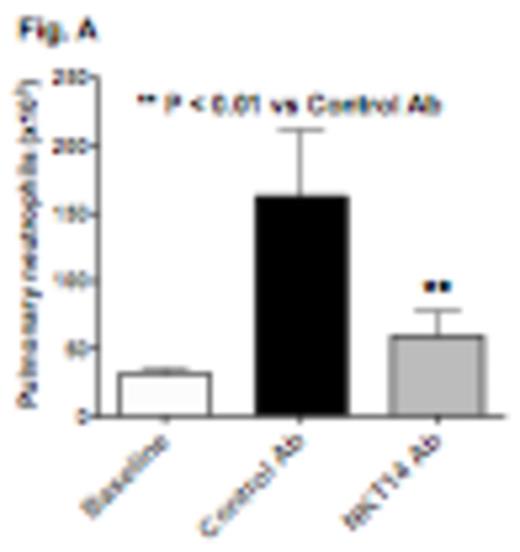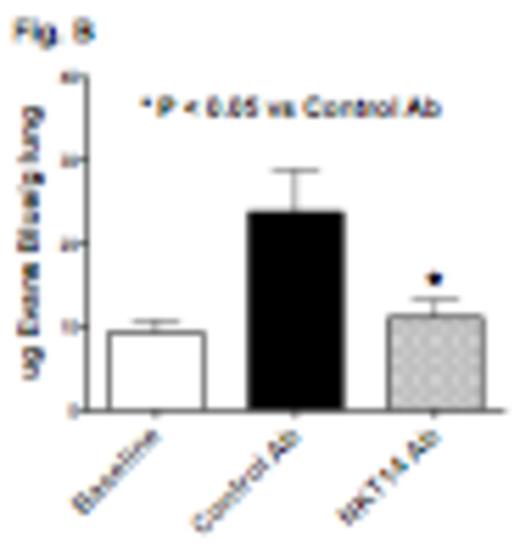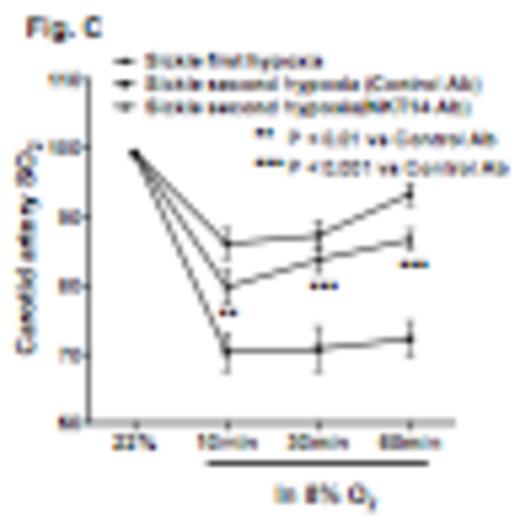Abstract
Background: Painful vaso-occlusive crises (pVOC) are caused by the polymerization of sickle deoxyhemoglobin, red cell sickling and vaso-occlusion. Vaso-occlusion is exacerbated by an inflammatory cascade that is initiated by iNKT cell activation. Townes sickle cell mice have mouse globins replaced by human globins, including the mutant human sickle b-globin gene (SS). NKT-14 is a monoclonal antibody directed specifically to the mouse invariant T cell receptor (iTCR). The antibody is a chimeric mouse IgG2a that, when bound to the mouse iNKT cell, promotes a rapid, specific and long lasting (> 14 days) depletion.
Aims: Our primary goal was to determine if selective iNKT cell depletion with NKT-14 reduces lung inflammation and injury in response to hypoxia-induced RBC sickling in Townes SS mice.
Methods: Hypoxic pulmonary injury was induced by placing mice in 8% O2 (Coy Lab products)followed by reoxygenation. Some mice were subject to a second period of hypoxia and continuously monitored to determine carotid Hb-saturation (Starr MouseOx). Total cell numbers and activation state of iNKT cells and neutrophils in lung were determined by FACS. Pulmonary vascular leak was quantified with Evans Blue dye.
Results: Twelve hours of 8% hypoxia followed 4 hours of reoxygenation (H/R) was found to produce non-lethal lung inflammation and injury in SS mice. Compared to isotype Ab controls, injection of four mice with 100µg/mouse of NKT-14 Ab three days prior to HR was found to decrease the number of pulmonary iNKT cells by 91% (P < 0.01). Following H/R, NKT-14 Ab treatment resulted in a significant 65% decrease in lung neutrophil accumulation (Fig. A, P < 0.01), and a 54% decrease in pulmonary vascular leak (Fig. B, P < 0.05). In addition, arterial Hb-Sat during a second exposure of SS mice to hypoxia was improved (Fig. C).
Conclusions: Selective depletion of mouse iNKT cells by injection of NKT-14 Ab three days prior to H/R results in substantial reductions in pulmonary inflammation, vascular leak and injury as measured by Hb-Sat in SS mice. The results suggest that prophylactic Ab-mediated depletion of iNKT cells in humans with SCD may be useful for reducing the incidence and severity of pVOC and acute chest syndrome.
Schaub:NKT Therapeutics Inc: Employment, Equity Ownership. Scheuplein:NKT Therapeutics Inc: Employment, Equity Ownership. Mashal:NKT Therapeutics Inc: Employment, Equity Ownership.
Author notes
Asterisk with author names denotes non-ASH members.




This feature is available to Subscribers Only
Sign In or Create an Account Close Modal